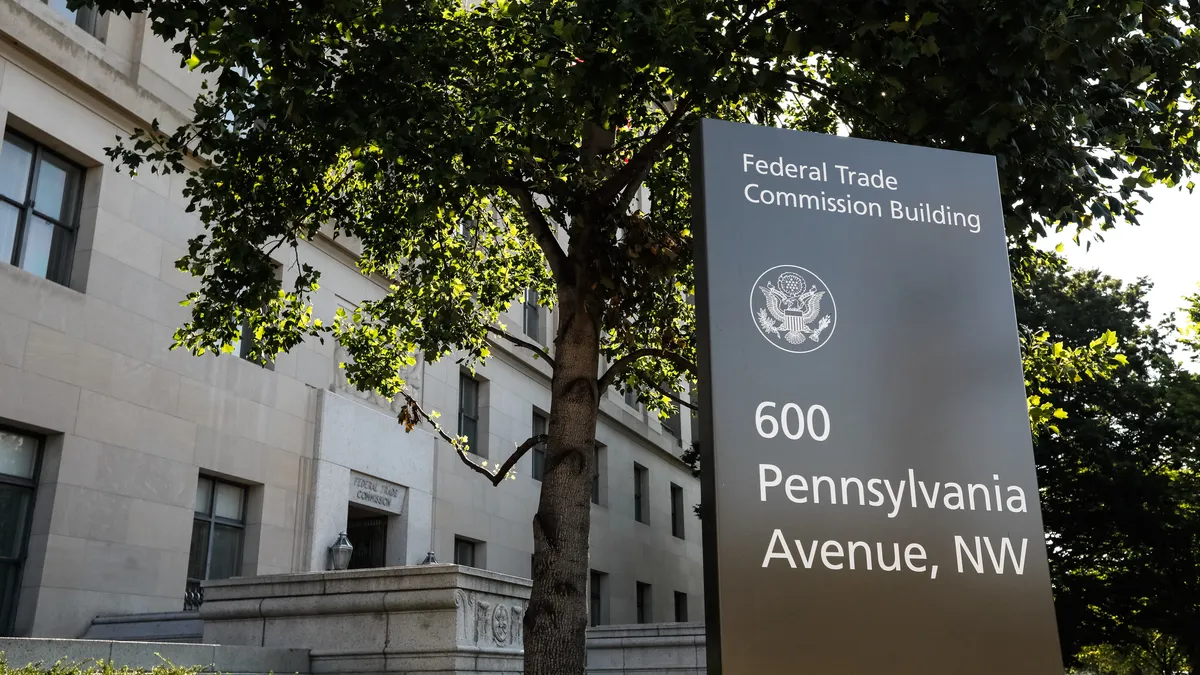Dive Brief:
- U.S. artificial intelligence startup Air AI Technologies and its operators used deceptive claims about business growth, earnings potential and refund guarantees to fleece clients, the Federal Trade Commission alleged in a Monday lawsuit.
- Since at least February 2023, defendants have deceptively marketed and sold a series of products and services aimed at entrepreneurs and small businesses, cashing in on “significant false earnings claims” and a guaranteed refund policy, to bilk customers collectively out of roughly $19 million over the course of only a few years, according to the complaint, which was filed in the U.S. District Court for the District of Arizona. The agency is seeking monetary relief as well as a permanent injunction banning the alleged conduct.
- “Companies that market AI-related tools with false promises of unrealistic investment returns and guaranteed refunds harm hardworking small business owners and undermine legitimate business’s adoption of AI,” FTC Bureau of Consumer Protection Director Christopher Mufarrige said in a statement. “The FTC is focused on ensuring the promise of new technology isn’t misused as a means to mislead consumers.”
Dive Insight:
The action comes as U.S. AI policy is in a state of flux. The White House last month released an AI action plan that was heavily focused on deregulation while leaving the door open for federal agencies such as the FTC to continue closely watching the space.
“[W]e must prevent our advanced technologies from being misused or stolen by malicious actors as well as monitor for emerging and unforeseen risks from AI,” the plan states. “Doing so will require constant vigilance.”
The White House effort signals a “shift toward easing regulatory barriers to support AI innovation,” according to a PricewaterhouseCoopers analysis.. “But deregulation doesn’t mean a lack of oversight — it reflects a move toward rationalized regulation.”
The plan calls for a review of all FTC investigations initiated under the previous administration to ensure they “do not advance theories of liability that unduly burden AI innovation.” But this is unlikely to sweep in “straightforward cases” involving deceptive marketing claims, Michael Atleson, of counsel for global law firm DLA Piper, wrote in an article published by Law360 earlier this month.
The commission enforces a number of consumer protection and competition laws, including the FTC Act, which prohibits deceptive and unfair trade practices.
In its suit filed on Monday, the FTC alleged that defendants engaged in various illegal activities, including making false or unsubstantiated claims that people who purchase their services will or are likely to make substantial earnings; failing to provide consumers with required disclosure documents and earnings claims statements; and failing to provide refunds when consumers met the refund policy requirements.
False promises made by Air AI, a Delaware corporation with its principal place of business in Phoenix, Arizona, have left many entrepreneurs and small businesses in debt, with losses up to $250,000, according to the complaint. Besides Air AI and its operators, the defendants include five other companies accused of participating in the alleged scheme.
The defendants sell business coaching materials and support, along with a suite of AI-related business support products called an “Air AI Access Card” membership, according to the suit. They have marketed their flagship product as “conversational AI,” capable of replacing human customer service representatives and, in combination with their coaching and other services, making business owners large sums of money, the FTC alleged.
According to the complaint, Air AI and its owners have made claims that its customers “would earn back tens of thousands of dollars within 30 days,” while some could make millions of dollars using these services.
However, consumers often do not earn the promised profits or even recoup the money paid to Air AI, the FTC said. The agency also asserted that Air AI and its owners deceived consumers by promising that Air AI would provide full refunds to customers who do not earn a certain amount — typically twice or three times their investment within a specified number of months — or are unsatisfied with the products for any other reason.
In reality, when consumers ask for a refund, the defendants rarely honor their guarantee, often delaying and leaving consumers in the dark before cutting off communication altogether, the FTC said.
“Despite Defendants’ promises, at best, Defendants offer coaching that does not help consumers start or grow a business, glitchy software that does not perform as advertised, and licenses to resell the same,” according to the complaint. “At worst, Defendants sell consumers a junk suite of services that do not exist or are not consistently available.”
A spokesperson for Air AI could not immediately be reached for comment.















